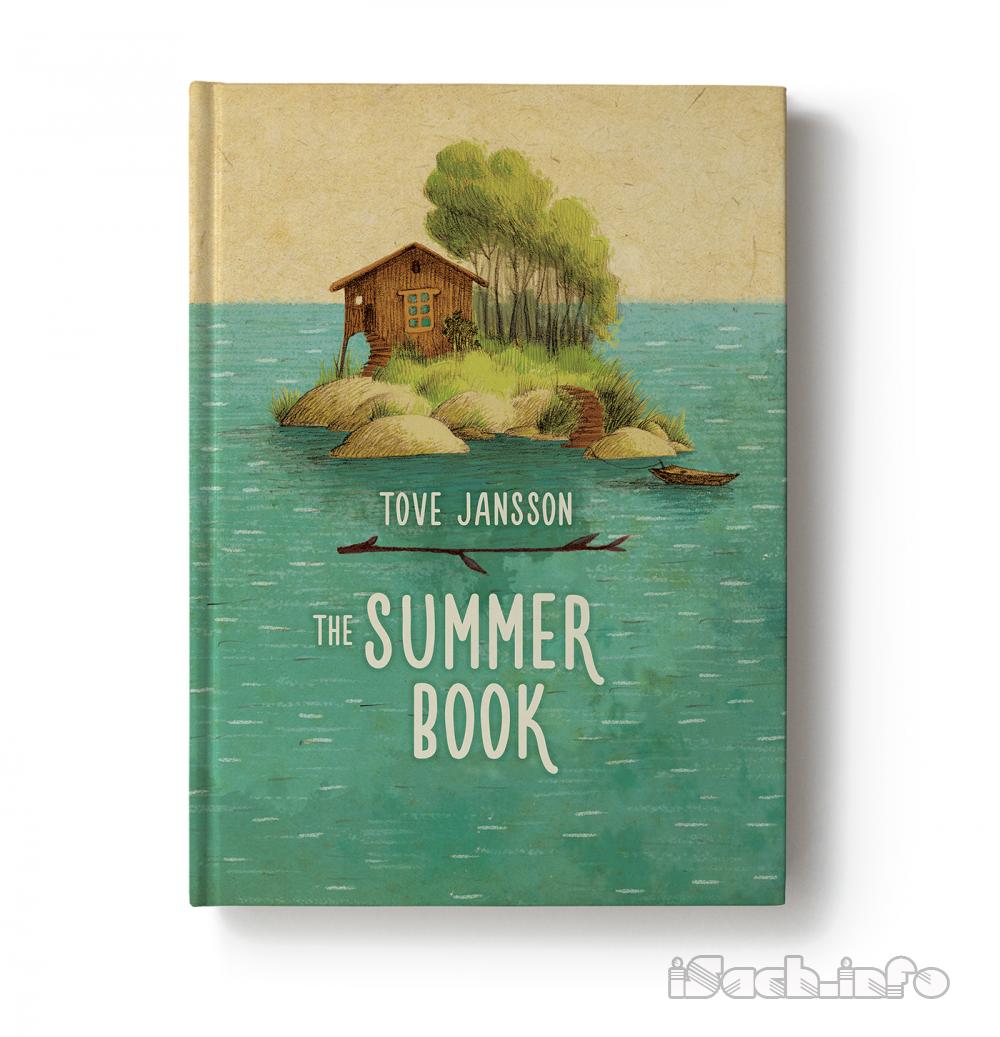Chapter 4: The Scolder
O
NE MORNING before dawn it got very cold in the guest room. Grandmother dragged the rag rug up on the bed and pulled some raincoats down from the wall, but they didn’t help much. She supposed it was due to the bog. It’s a funny thing about bogs. You can fill them with rocks and sand and old logs and make a little fenced-in yard on top with a woodpile and a chopping block—but bogs go right on behaving like bogs. Early in the spring they breathe ice and make their own mist, in remembrance of the time when they had black water and their own sedge blossoming untouched. Grandmother looked at the oil stove, which had gone out, and at the clock, which said three. Then she got out of bed and put on her clothes, took her walking stick, and hobbled down the stone steps. It was a dead-calm night, and she wanted to listen to the long-tailed ducks.It was not only the woodyard: the whole island was covered with fog, and there was that special early May silence near the sea. The branches of the trees dripped water, clearly audible in the silence. Nothing was growing yet, and there were patches of snow in sheltered places, but the landscape was brimming with expectation. She heard the cry of the long-tailed ducks. They are called scolders, because their cry is a steady, chiding chatter, farther and farther away, farther and farther out. People rarely see them. They are as secretive as corncrakes. But a corncrake hides in a meadow all alone, while the long-tails are out beyond the farthest islands in enormous wedding flocks, singing all through the spring night.
Grandmother walked up over the bare granite and thought about birds in general. It seemed to her no other creature had the same dramatic capacity to underline and perfect events—the shifts in the seasons and the weather, the changes that run through people themselves. She thought about migratory birds, and the thrush on a summer evening, and the cuckoo—yes, the cuckoo—and the great, cold birds that sail and watch, and the very small birds that sweep in for hasty visits in large late-summer parties, chubby, dumb, and unafraid, and about the swallows that only honor houses where the people are happy. It seemed remarkable that the impersonal birds should have become such powerful symbols. Or maybe not. For Grandmother, long-tailed ducks meant anticipation and renewal. She walked carefully across the rock on her stiff legs, and when she came to the little cottage she knocked on the window. Sophia woke up at once and came outside.
“I’m going to go listen to the long-tails,” Grandmother said.
Sophia got dressed and they walked on together. On the east side of the island, there were small borders of ice around the rocks. No one had had time to gather driftwood yet, and the whole shore was a tangle, a broad bulging mass of tumbled planks and seaweed and reeds along with posts and fragile wooden boxes that had turned inside out around their steel frames, and on top of everything lay an enormous, heavy log that was black with oil-spill. Small pieces of bark and the splinters of old storms rocked in the water beyond the rim of ice, drawn slowly out and in again by a feeble swell. It was very close to sunrise, and the fog out over the sea was already suffused with light. The long-tailed ducks kept up their steady call, distant and melodious.
“They’re breeding,” Sophia said.
The sun came up. The fog glowed for an instant and then simply vanished. Out on a flat rock in the water lay a scolder. It was wet and dead and looked like a wrung-out plastic bag. Sophia declared that it was an old crow, but Grandmother didn’t believe her.
“But it’s spring!” Sophia said. “They don’t die now; they’re brand new and just married—that’s what you said!”
“Well,” Grandmother said, “it did die now, all the same.”
“How did it die?” Sophia yelled. She was very angry.
“Of unrequited love,” her grandmother explained. “He sang and scolded all night for his scolder hen and then along came another and stole her away, so he put his head under the water and floated away.”
“That’s not true,” Sophia screamed. She started to cry. “Long-tails can’t drown. Tell it right!”
So Grandmother told her he had simply hit his head on a rock. He was singing and scolding so hard that he didn’t look where he was going, and so it just happened, right when he was happier than he’d ever been before.
“That’s better,” Sophia said. “Shall we bury him?”
“It’s not necessary,” Grandmother said. “The tide will come in and he’ll bury himself. Seabirds are supposed to be buried at sea, like sailors.”They walked on and talked about burial at sea, and the long-tails sang in dyads and triads, farther and farther away. The neck of land out toward the point was completely transformed by the winter storms. There had never been anything but rocks out there, but now the whole shore was sand.
“We ought to save it,” Grandmother said, poking the sand with her stick. “If the sea rises and we get a north wind, all of it will wash back out again.”
She stretched out full length on a bed of whitened reeds and looked at the sky. Sophia lay down beside her. It was growing warmer all the time, and after a while they heard the curiously chilly, somehow veiled sound of migratory birds in flight and watched a whole flock fly in over the island toward the northeast.
“What’ll we do now?” Sophia said.
Grandmother suggested that Sophia walk around the point and see what had drifted ashore.
“Are you sure you won’t be bored?” Sophia asked.
“Absolutely sure,” Grandmother said.
She turned on her side and put her arm over her head. Between the arm of her sweater, her hat, and the white reeds, she could see a triangle of sky, sea, and sand—quite a small triangle. There was a blade of grass in the sand beside her, and between its sawtoothed leaves it held a piece of seabird down. She carefully observed the construction of this piece of down—the taut white rib in the middle, surrounded by the down itself, which was pale brown and lighter than the air, and then darker and shiny toward the tip, which ended in a tiny but spirited curve. The down moved in a draft of air too slight for her to feel. She noted that the blade of grass and the down were at precisely the right distance for her eyes. She wondered if the down had caught on the grass now, in the spring, maybe during the night, or if it had been there all winter. She saw the conical depression in the sand at the foot of the blade of grass and the wisp of seaweed that had twined around the stem. Right next to it lay a piece of bark. If you looked at it for a long time it grew and became a very ancient mountain. The upper side had craters and excavations that looked like whirlpools. The scrap of bark was beautiful and dramatic. It rested above its shadow on a single point of contact, and the grains of sand were coarse, clean, almost gray in the morning light, and the sky was completely clear, as was the sea.Sophia came back, running.
“I found a floor grate!” she hollered. “It’s big; it’s from a ship! It’s as long as a boat!”
“You don’t say!” her grandmother said.
It was important for her not to stand up too quickly, so she had time to watch the blade of grass just as the down left its hold and was borne away in a light morning breeze. It was carried out of her field of vision, and when she got on her feet the landscape had grown smaller.
“I saw a feather,” she said. “A piece of scolder down.”
“What scolder?” Sophia said, for she had forgotten the bird that died of love.



 ePub
ePub A4
A4